begin quote from:
Cruz drops out: 'We left it all on the field in Indiana'
Ted Cruz drops presidential bid
(CNN)Ted
Cruz bowed out of the Republican presidential race Tuesday following a
crushing loss to Donald Trump in Indiana, clearing the path for the real
estate mogul to clinch the GOP nomination.
It
was a remarkable turn of events in a presidential primary race that
seemed destined -- just weeks ago -- to end in a contested convention
this summer. Even in the final hours of the race in the Hoosier State,
Cruz insisted he was staying in the race until June 7 -- going so far as
to attack his rival during a news conference as a "pathological liar"
unfit for the White House.
In the
end, the growing strength of Trump's candidacy and Cruz's own stumbles
in the past two weeks were too much for Cruz to overcome. The Cruz,
Kasich and anti-Trump forces had concocted elaborate plans to try to
deprive Trump of the 1,237 delegates he needs to win the nomination
outright. But those plans hinged on money and momentum. After Tuesday
night, it appeared that Cruz would have neither.
"We
left it all on the field in Indiana. We gave it everything we've got
but the voters chose another path," Cruz said. "So with a heavy heart
but with boundless optimism for the long-term future of our nation, we
are suspending our campaign."
Cruz,
a tea party favorite, had hoped to cobble together a winning coalition
by consolidating the evangelical and libertarian wings of the Republican
Party while also racking up commanding wins in the South. He was
ultimately unable to achieve any of those things. Exit polls on Tuesday
night showed that Indiana's evangelical voters split their votes evenly
between Trump and Cruz. The Texas senator had the edge among late
deciders, who made up a quarter of voters, but it wasn't enough.
He
signaled that he was nearing the end Tuesday during an appearance on
Dana Loesch's radio show, stating that his campaign had "left it all on
the field."
"We
are competing to the end as long as we have a viable path to victory,"
he said. "We are competing hard in this state and I am hopeful and
optimistic. But at this point, it's in the hands of voters."
Cruz's
final weeks as a presidential candidate were dominated by awkward
moments. He forged an alliance with Ohio Gov. John Kasich that quickly
crumbled. He named Carly Fiorina as his running mate, an unusual move
for someone who is far from winning the nomination. Indiana Gov. Mike
Pence endorsed him -- while also offering kind words for Trump.
He
was also ridiculed for referring to a basketball hoop as a "ring" and
for seemingly failing to notice when Fiorina fell off a stage in front
of him.
Still, Cruz outlasted more
than a dozen Republican rivals demolished by Trump by adopting an early
strategy of playing nice. The Texas Senator had cultivated his image as
the ultimate outsider in Washington. He attempted to channel the same
frustration against Washington that Trump so successfully harnessed as
he avoided becoming one of Trump's chief targets.
But
Cruz's strategy was predicated on the notion that Trump's candidacy
would ultimately implode -- as a result of remarks that went too far or
actions that American voters deemed unpresidential.
That never happened.
Supporters
of Cruz questioned whether he had waited too long to take on the real
estate magnate, as he did in no uncertain terms during his news
conference on Tuesday.
In one
memorable tweet in mid-December, Cruz noted that "the Establishment" was
hoping for "a cage match" between him and Trump. "Sorry to disappoint,"
he tweeted, "@realDonaldTrump is terrific."
When
he appeared to inch ahead of Trump in December, Trump turned his fire
on Cruz, who was caught flat-footed. He pulled off a win in Iowa, but
ultimately lost many of the southern states that were supposed to be his
firewall.
When he entered the
Senate three years ago, Cruz clearly had presidential ambitions. But few
expected him to rise as quickly as he did -- particularly as he earned
the animosity of party leaders with his uncompromising stances and
spotlight-seeking actions.





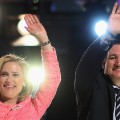
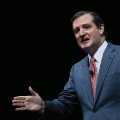
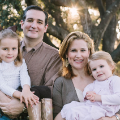
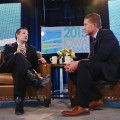
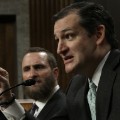
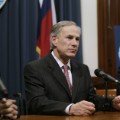
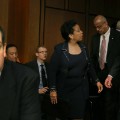

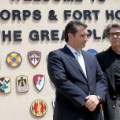
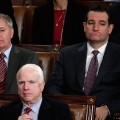
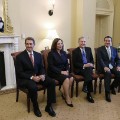
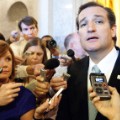
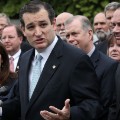
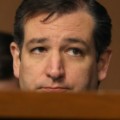
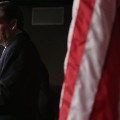
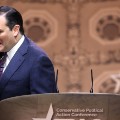

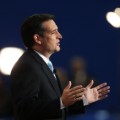
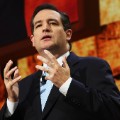
He
began the Republican race by forgoing the usual exploratory committee
and instead launching a bid for the White House with little preamble but
much fanfare as he stood before thousands of students at Liberty
University.
The framing for his
candidacy was surprising: Cruz had built his political profile around
the government shutdown, not his faith. But the speech signaled a
strategy that Cruz pursued over the better part of a year — an effort to
become the grass-roots candidate who brings together both evangelical
voters and the angry, economically anxious base that had powered
Republicans to historic wins in the 2014 midterms.
A
cluster of super PACs announced that they had $37 million in
commitments to help Cruz, raising the prospect that he could compete
with the likes of Jeb Bush, whose super PAC raised more than $100
million last year.
Cruz's strong
organization and deep resources were one of the surprising story lines
early in the Republican race. Even if he wasn't winning much in the way
of public support at that point, his critics conceded that he might have
the means to compete late into the presidential cycle.
But like everyone else on the GOP side, Cruz ran into Trump.
When Trump began making a
series of controversial statements in summer 2015, Cruz was one of the
only rivals who refused to rebuke the ascendant GOP frontrunner.
He
began rising in national and Iowa polls after several strong debate
performances, including one in which he blasted the moderator for
encouraging the Republican-on-Republican quarrels that he claimed to
deplore.
Trump began to take
notice. By December, Trump was questioning Cruz's position on ethanol
policy and the veracity of his faith. By January, Trump unleashed an
effective line of attack by questioning Cruz's eligibility to run for
the White House since he was born in Canada to an American mother.
Cruz, at times visibly irritated, began to strike back.
Before
the Iowa caucuses, he repeatedly questioned Trump's conservative
credentials — and those attacks seemed to have an effect. Cruz edged out
a small win over Trump in the Hawkeye State, and he was seen as having
the potential to go the distance.
Cruz then beat expectations in New Hampshire, finishing third, ahead of Bush and Marco Rubio.
But
in South Carolina, the state he hoped would be a springboard to other
critical Southern contests, Cruz struggled badly — falling to third
place and raising questions about the breadth of his appeal.
On
the first Super Tuesday contest, Cruz again fell short with
evangelicals, raising doubts about whether he could dominate among the
group that was so key to his candidacy.
On
Tuesday night, he said he was proud of his campaign and his stand for
conservative principles. There was no word yet whether he would pledge
his support to the presumptive Republican nominee.

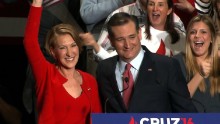
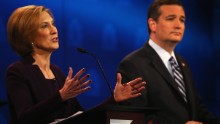



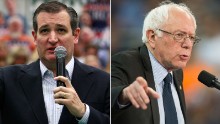












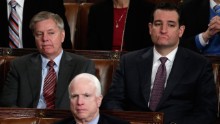





















No comments:
Post a Comment